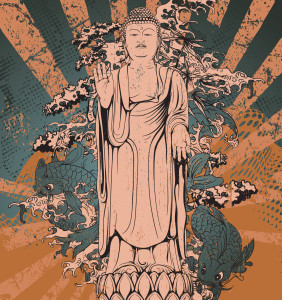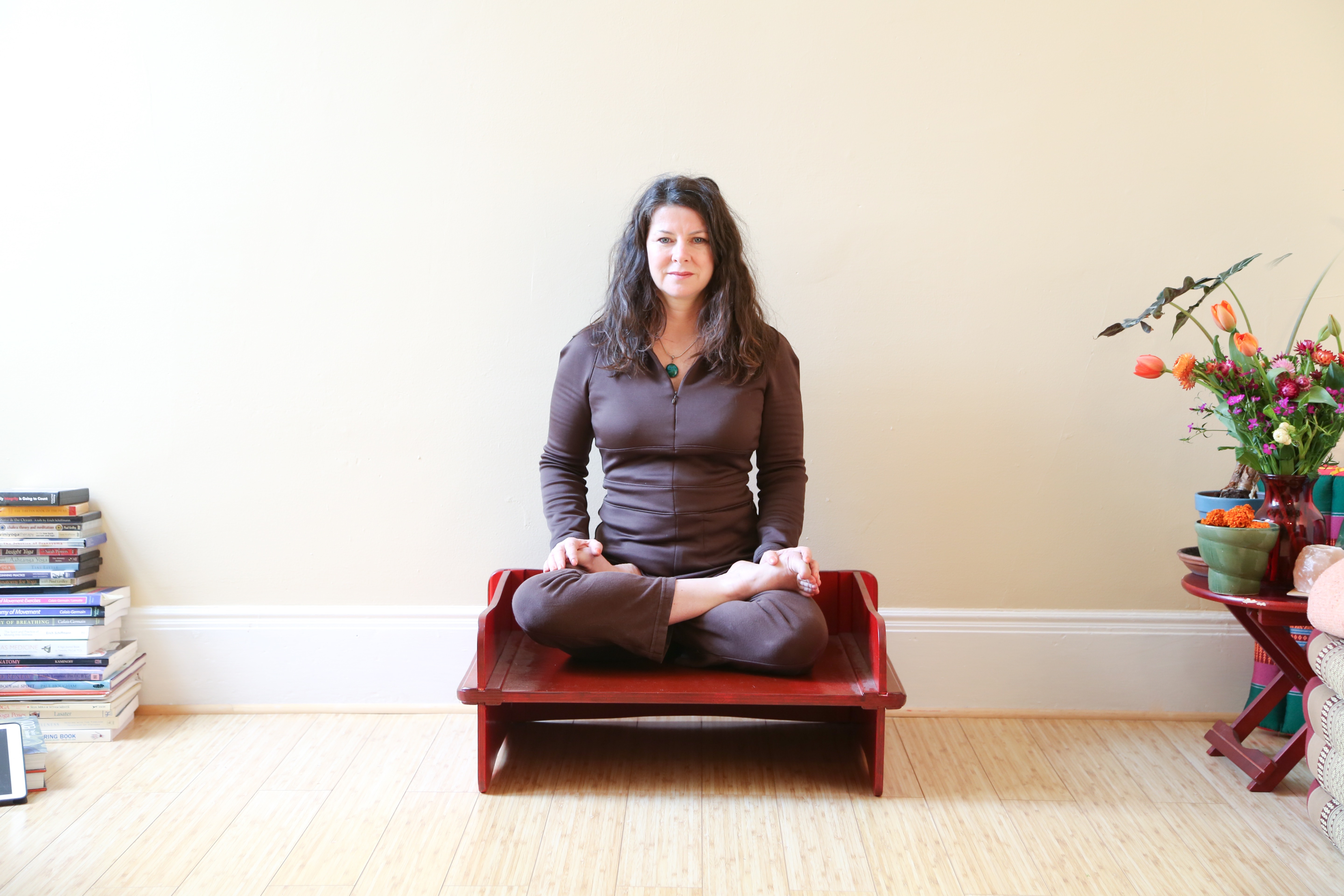 I chose 3 of the most frequent questions I’ve gotten over the last few months.
I chose 3 of the most frequent questions I’ve gotten over the last few months.
Together they span quite a broad range.
Here are my answers to your most popular questions. Let’s jump right in.
Q: At some point, your meditation guidance lost all traces of Buddhism, Yoga philosophy or New Ageism. Have you rejected these traditions?
 A: Not at all. As far as traditions go, Yoga and Buddhist philosophy are the solid rock of my entire practice- in study as well as in healing. I delved into each of them at different times when I really, really needed some guidance. Once I began to heal, in both cases, my intellect was already thirsty for more…..decades later, I’m still thirsty and (I’d like to think) still healing.
A: Not at all. As far as traditions go, Yoga and Buddhist philosophy are the solid rock of my entire practice- in study as well as in healing. I delved into each of them at different times when I really, really needed some guidance. Once I began to heal, in both cases, my intellect was already thirsty for more…..decades later, I’m still thirsty and (I’d like to think) still healing.
But meditation is a practice that I think is best learned as the clean process that it is.
It took me awhile to realize it, myself. It no longer makes sense to me to ask beginners to sort out the Buddhism and Hinduism or new age traditions from the process of meditation before they really have a sense of what meditation is.
That’s the practical part. Culturally, meditation doesn’t belong to any particular group, so why dress it up in a certain tradition and present it to a beginner who may or may not be into that tradition?
We are born meditators. We have all the makings of a meditator encoded within us. We’re designed to relax and wake up. It’s about survival.
Meditation as a practice is a refinement of this survival instinct we have in us. We not only relax and wake up to survive, but to evolve and progress, individually and collectively.
Hopefully this goes without saying, I don’t blame other people for doing that, teaching meditation with Buddhism, for example. I’m just not going to do it. But if I was a Buddhist teaching in a Buddhist center to people who wanted to study Buddhism, maybe meditation with a Buddhist slant would make sense.
But, I’m not a Buddhist. I teach laypeople, in privately owned studios, what I consider more of a marketplace than a Spiritual Center. I hope that doesn’t offend any yoga studio owners. I myself have a little studio. It’s a spiritual place to me, to those who practice there, but it’s not a Spiritual Center. It’s a studio in a building along with a designer, a solar power start-up, and other micro-businesses. It’s a marketplace. I like it that way. Another thing– maybe because so many people are doing it already. And so many do a really good job of it…
Q: You blogged about apps for yoga and meditation. You held a meditation session on the phone/internet. Yet, we’re supposed to try to be present. How does the phone or internet help us be present? Isn’t the opposite more likely to happen?
 A: It’s up to you whether you’re present or not. This is good news.
A: It’s up to you whether you’re present or not. This is good news.
A guru, solitude, monastic living, the best intentions, millions of om’s aren’t going to make a difference. They are just devices. Necessary to get through to the realness, maybe. But their presence does not assure realness.
Get real now or don’t get real. Or spend the rest of your life wondering if you’ve got the right tools, teacher, time, place–telling yourself that once you get things straightened out, once that right time comes, then you’ll get real.
Actually, we don’t even need meditation to get real. We’re born real and we get less real as we grow. Then we need a process to get back to the realness and then devices come in to help us get through the process to get back to the realness…..
Q: You rarely talk about the Bhakti tradition of yoga. You don’t teach chanting or even use mantra in your talks. Why not?
 A: I can’t master everything. Do everything. As much as I’d like to.
A: I can’t master everything. Do everything. As much as I’d like to.
I feel like my teaching is broad enough. Any more and I’d be a mess.
I love mantra, Sanskrit language, I love to use my voice, feel vibration in my body, to attend kirtan with other people leading when I’m in the mood. But, long story short, teaching it doesn’t feel right for me. I’m not so much of a devotional person, for one. Secondly, I’d need to seriously study Sanskrit and other traditions that ground the Bhakti tradition before I could lead a room full of trusting people into a state of collective ecstasy. Enough said.
I’m more insight-oriented. But devotion is a beautiful thing and I am devoted in my own way. When I reflect on The Source, I feel humbled, in awe, connected, in love. I don’t think of mantra or any kind of scripture. I feel big, open, simple. Quiet.
I prefer the streets and nature to temples.
I’m more interested in finding ways to teach meditation to skeptics and the disenfranchised than a room full of committed devotees.
We forget that doubt has a purpose and that struggle is not to be feared.
NAMASTE.

